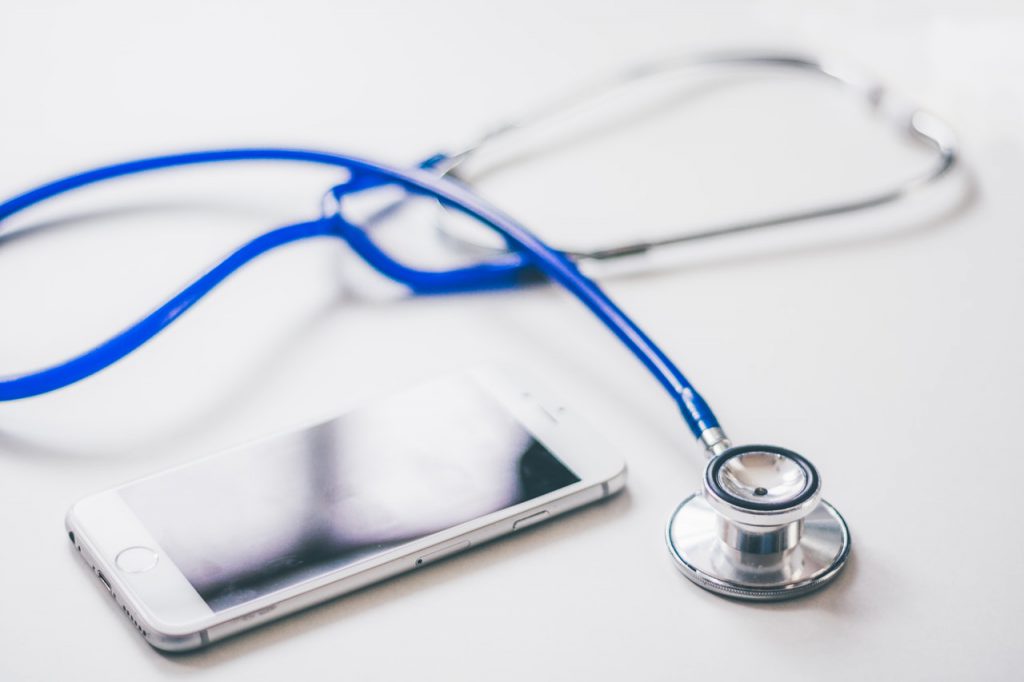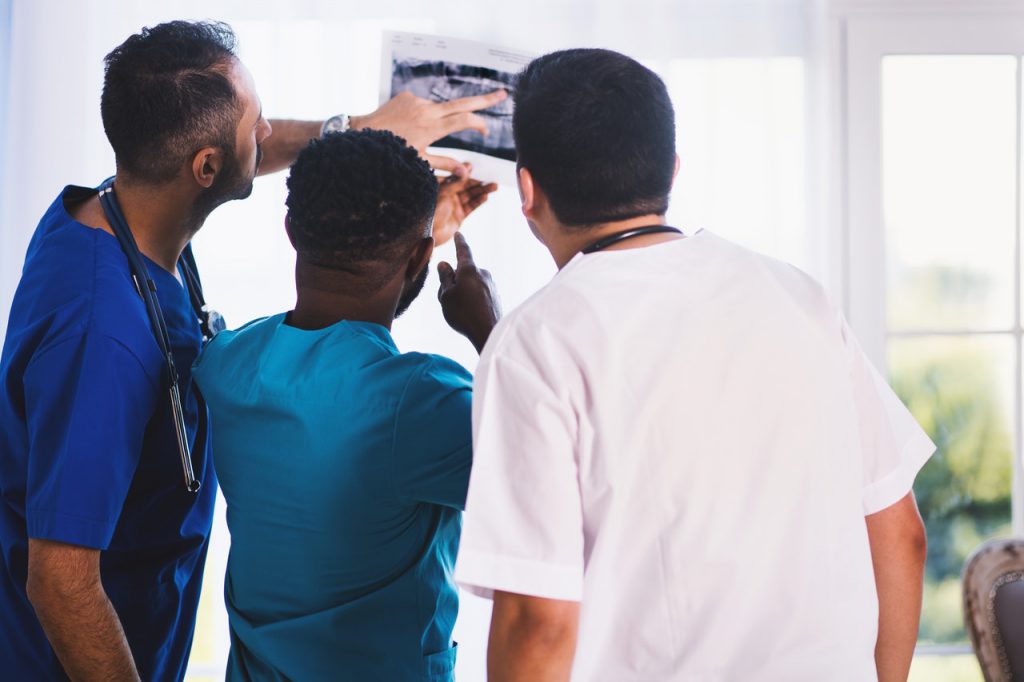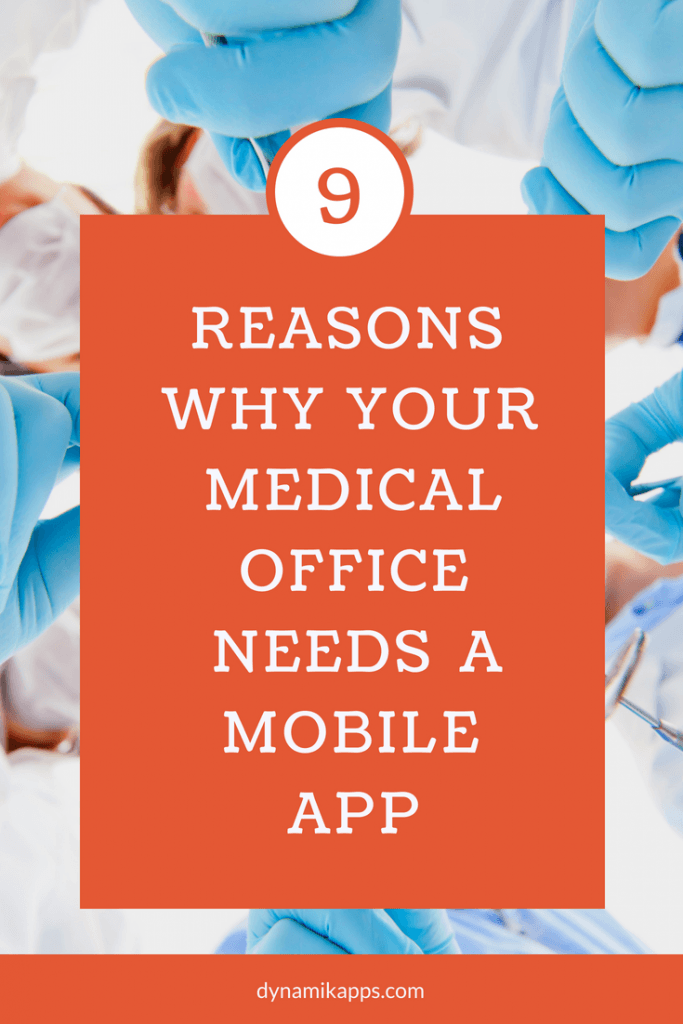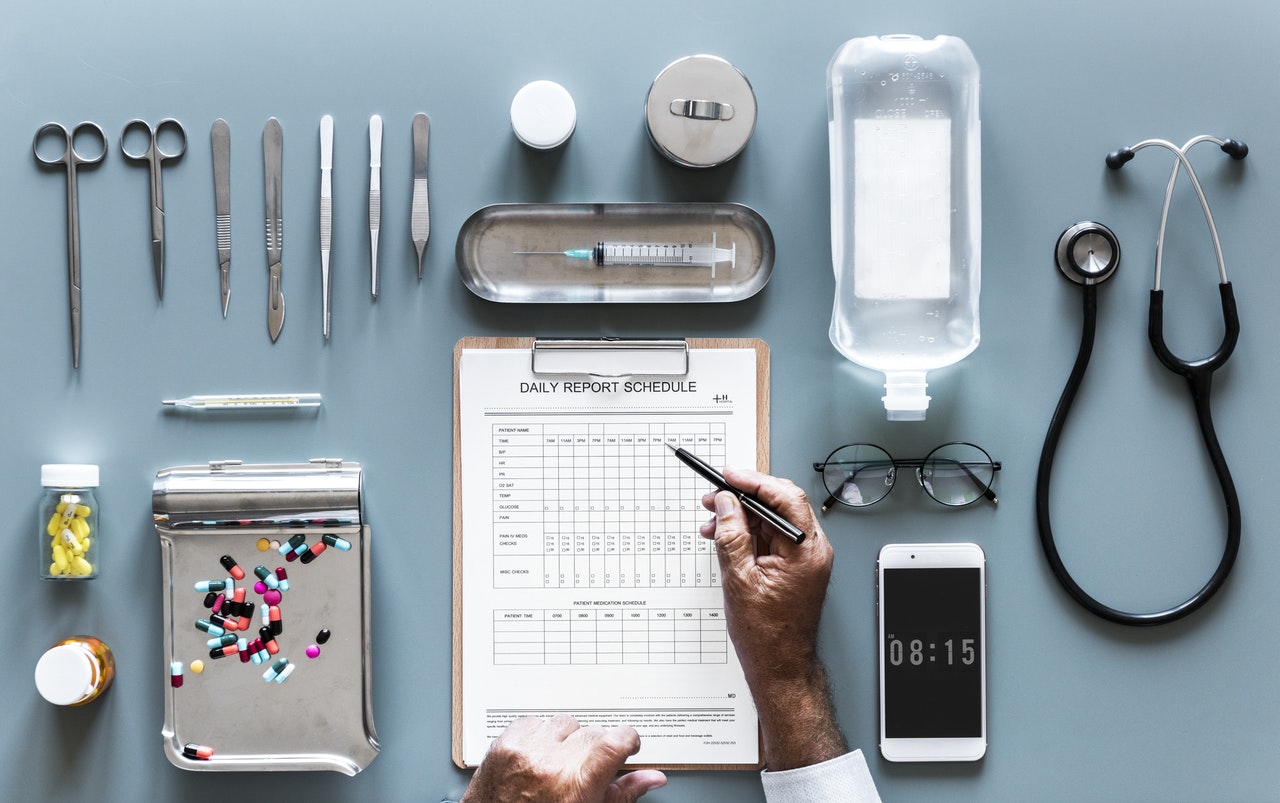If you’ve been deliberating over developing a mobile app for your medical office, you’re already thinking ahead in your industry.
Medical specialists often look to their mobile devices to source medical data or to stay up to date with the latest breakthroughs in the health sphere. Yet at the time of this article, the market for health-related mobile apps is virtually untapped.
We see a trend of mobile culture quickly embedding itself into the health industry making way for the medical mobile apps of the future. This means that regardless of what health sector you’re in, the following 9 reasons why your medical office needs a mobile app are ones worth considering:
1. Providing access to health records
Limited access to medical records is a dilemma many patients face when they can’t get in touch with their doctors.
Patients sit through long phone calls, stressful transfers, and sometimes dead ends while trying to get their records sent to them.
For both the patient and the office, this process is not in any way time efficient. Patients and doctors should –and can–have access to their medical records. Including such a feature in your mobile app makes access for both patients and specialists a lot easier saving both parties time, expenses, and perhaps even the patient’s life.
2. Scheduling and keeping up with appointments
It’s become rather common for patients to visit a clinic or hospital only to be given an appointment that might require long wait times or a new visit altogether.
It is equally common for patients to miss or be late to their appointments for various reasons that often can’t be avoided.
For medical offices, this means lots of rescheduling and full, slow waiting rooms.
“With a mobile apps for your medical office, patients can manage their appointments from wherever they are as soon as something comes up.”
This helps to decongest waiting areas, reduce office staff workload currently spent on scheduling, increase office efficiency, and more importantly improve patient experience.
3. Organization for hospital administration
Keeping up with medical administrative work can be tasking. With everything that’s happening in the office, you also have to be aware of how patients come, go, and use all the available medical facilities. Using a mobile app as a tool to help administrative staff stay on track with the constant changes can improve their level of organization.

Imagine or allocating resources on a mobile app, while managing patient check-in and discharge. Everything runs fluidly with a mobile medical app that keeps critical information current, including available spacing and inventory.
4. Follow up tips and advice for patients
Patients often find it difficult to keep up with a healthy lifestyle after their visit to the doctor. In some cases, it’s likely that they’ve forgotten their medical recommendations or even the dates of their follow-up visits. Depending on the patient’s specific situation, forgetting such important information may slow down recovery or even lead to complications.
Mobile apps can remind patients of daily activities they need to be practicing for their health and well-being.
In fact, much of the regimen doctors recommend for individual patients can be conveniently viewed on the app giving the patient more autonomy since they no longer need to call their doctors or schedule another visit. With their versatility, medical mobile apps can not only facilitate recovery of your patients but also reduce workload and increase communication.
That might even mean a little extra time off for the hardworking doctor and staff.
5. Finding specialists
Apps are also practical tools for patients looking to see local specialists. They are customized to notify patients of your hours of operation saving them time and a blank trip to a closed office.

Apps can increase your exposure and detail the services you provide ultimately advertising for your hospital or practice in a subtle, yet effective way.
6. Tracking Medical Inventory
How much medicine does your office or hospital have right now?
What about vital supplies?
Adding an inventory tracker in your mobile app that notifies you when medicine is running low can simplify your ordering process for other important medical materials. Doctors and pharmacists will no longer have to redirect patients or wait in the middle of a consultation to find out what they have in stock; they can simply check their app for the most up to date information on what they have on hand.
7. Managing patients’ bill payment
Following up on patient bills payments can be a P-A-I-N.
Between calling banks, insurance companies, and the patients themselves, collecting payment for medical bills is more hassle than anyone would like to deal with.
“A hospital mobile app is an excellent solution to completely automate this process.”
Patients can safely add their bank information on their profiles to simplify timely payments and avoid the risk of going to collections. With an app for a hospital or doctor’s office, patients are notified of their outstanding bills on a schedule you choose.
8. Wayfinding
A simpler, yet powerful medical app benefit is its built-in wayfinding function. Instead of asking for directions several times before finally locating your office, patients are able to find a direct route wherever they are.
A mobile app can simplify the journey by including a mapping/direction feature to locate your office quickly and efficiently.
9. Automate Test Result Delivery
A mobile app is designed to notify patients when their tests results become available. In fact, the mobile app can be customized to automatically add their results to their hospital records for easy access later. They can check these results and schedule a doctor’s visit based on the findings–all without having to visit the medical office in person.
In no way are the mobile apps benefits for a medical office limited to those listed above. Patients, doctors, and medical staff can be positively impacted in many ways that didn’t make this list.
A review revealed that a fair percentage of people go to their mobile apps for health tips. Even the specialists surveyed believe in its ability to propagate a healthier life. This is in addition to the data found on statistica that shows positive prospects regarding mobile app usage. Pair that further with the results of a survey carried out on mhealth showing the public perception of the helpfulness of mobile apps for providing better health services for an even more convincing case about the future of apps.
The bottom line is having an efficient mobile app can increase productivity for medical practices especially when it has features that are both easy to use and tackle specific user problems.

Find out how much it cost to build your app using our,
Let’s make great things happen!
Handy


